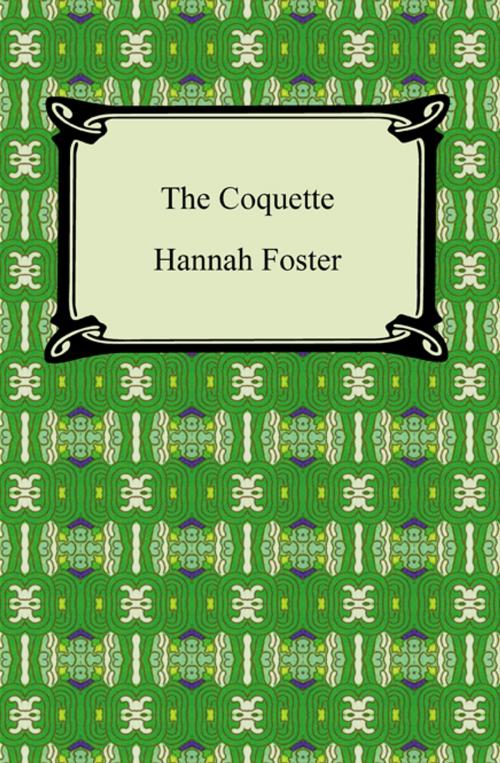| Author: | Hannah Foster | ISBN: | 9781420941845 |
| Publisher: | Neeland Media LLC | Publication: | December 15, 2009 |
| Imprint: | Digireads.com Publishing | Language: | English |
| Author: | Hannah Foster |
| ISBN: | 9781420941845 |
| Publisher: | Neeland Media LLC |
| Publication: | December 15, 2009 |
| Imprint: | Digireads.com Publishing |
| Language: | English |
Hannah Webster Foster (1758-1840) was an American novelist who published her best-selling novel, "The Coquette", anonymously in 1797. It wasn't until 1866, after multiple reprints of the novel, and 26 years after the author's death, that her name appeared on the work. The novel is a fictionalized account of a Connecticut socialite named Eliza Wharton, whose death nine years prior had been highly publicized. Wharton was a 37 yr-old woman who died at a roadside tavern giving birth to a stillborn, and being unmarried, her death was turned into a moral allegory by ministers and journalists. Women were lectured on the moral consequences of reading romantic novels, and Eliza Wharton was labeled as a coquette. Foster wrote the novel in epistolary form, which allowed for an unbiased perspective of the characters and their actions. Drawing on factual information from the newspaper accounts, Foster gave a much more sympathetic portrayal of Wharton and the repressive social conditions that faced woman of the time.
Hannah Webster Foster (1758-1840) was an American novelist who published her best-selling novel, "The Coquette", anonymously in 1797. It wasn't until 1866, after multiple reprints of the novel, and 26 years after the author's death, that her name appeared on the work. The novel is a fictionalized account of a Connecticut socialite named Eliza Wharton, whose death nine years prior had been highly publicized. Wharton was a 37 yr-old woman who died at a roadside tavern giving birth to a stillborn, and being unmarried, her death was turned into a moral allegory by ministers and journalists. Women were lectured on the moral consequences of reading romantic novels, and Eliza Wharton was labeled as a coquette. Foster wrote the novel in epistolary form, which allowed for an unbiased perspective of the characters and their actions. Drawing on factual information from the newspaper accounts, Foster gave a much more sympathetic portrayal of Wharton and the repressive social conditions that faced woman of the time.















